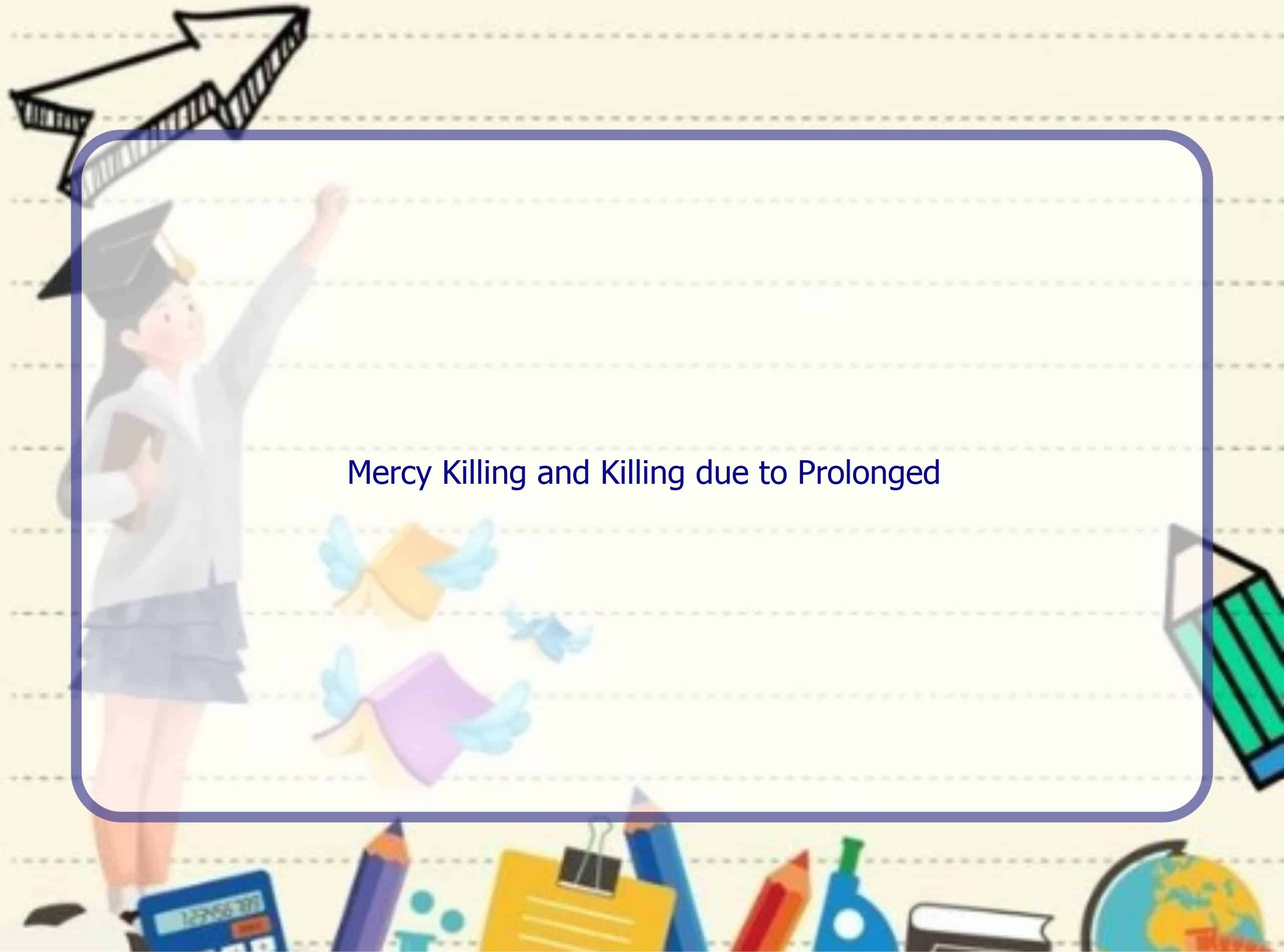Islam’s Stance on Mercy Killing and Killing due to Prolonged Illness
Islam’s Prohibition of Mercy Killing and Euthanasia
In Islam, the concept of mercy killing or euthanasia is strictly prohibited. Islam considers human life to be sacred and holds the belief that only Allah has the right to give and take life. The decision to end a person’s life due to their prolonged illness is not permissible according to Islamic teachings.
Islam places great importance on preserving and protecting life. All forms of active euthanasia, where a person directly causes death, are considered sinful in Islam. This includes actions such as administering lethal injections or deliberately hastening death.
Preserving and Protecting Life in Islam
Islam promotes the preservation and protection of life to the best of one’s ability. Muslims are encouraged to seek appropriate medical treatments and provide necessary support to those who are ailing. The Islamic perspective on prolonged illness is that it is a test from Allah and that patience and trust in Allah’s decree are essential in facing such challenges.
Emotional factors should not be the sole basis for making treatment decisions. Instead, medical professionals and caregivers should focus on providing the best possible care, striving to alleviate pain and suffering, and exploring all available medical interventions that can improve the patient’s condition, in accordance with Islamic principles.
Trust in Allah’s Decree and Belief in the Sanctity of Life
In Islam, the belief in the divine decree is fundamental. Muslims trust that life and death are determined by Allah’s will and timing. Thus, rather than resorting to mercy killing out of desperation or to alleviate suffering, Islam encourages patience, persistence, and hope in Allah’s mercy.
Islamic teachings emphasize that every disease has a cure, whether known or yet to be discovered. Muslims are encouraged to seek medical treatments and have faith in the possibility of recovery. Allah’s wisdom and mercy are believed to encompass all aspects of life, including illness, and Muslims are encouraged to place their trust in Allah’s plan.
Prohibition of Suicide and Assisted Suicide in Islam
In addition to forbidding mercy killing, Islam also strictly prohibits suicide and assisted suicide. Suicide, taking one’s own life, is considered a grave sin in Islam. It is seen as a violation of the sanctity of life, which is a gift from Allah and should not be taken away by human hands. Islam teaches that life is a temporary test, and individuals should patiently endure hardships, seeking solace in prayer and seeking help from Allah and the community.
Similarly, Islam discourages assisting others in taking their own lives. Assisted suicide, where someone aids, encourages, or provides the means for another person to end their life, is seen as a transgression of the Islamic teachings. Muslims are encouraged to offer support and care for those who are experiencing difficulties, including physical and emotional pain, rather than facilitating their self-destruction.
Frequently Asked Questions (FAQ)
1. Is mercy killing allowed in Islam?
No, mercy killing or euthanasia is strictly prohibited in Islam. Islam considers human life to be sacred and only gives Allah the right to give or take life.
2. Can someone be killed due to their prolonged illness in Islam?
No, killing someone due to their prolonged illness is not permissible in Islam. Islam emphasizes preserving and protecting life to the best of one’s ability.
3. How does Islam view the preservation of life?
Islam promotes preserving and protecting life. Muslims are encouraged to seek appropriate medical treatments and provide necessary support to those who are ailing.
4. What role does trust in Allah’s decree play in Islamic teachings?
Trust in Allah’s decree is crucial in Islamic teachings. Muslims believe that life and death are determined by Allah’s will and timing, and patience and hope in Allah’s mercy are encouraged.
5. Are suicide and assisted suicide allowed in Islam?
No, both suicide and assisted suicide are strictly prohibited in Islam. Islam considers life to be sacred and discourages taking one’s own life or facilitating someone else’s self-destruction.
6. What should be the basis for treatment decisions in Islam?
Emotional factors should not be the sole basis for treatment decisions in Islam. Medical professionals and caregivers should focus on providing the best possible care and exploring all available medical interventions to improve the patient’s condition.
7. Does Islam believe in the possibility of cure for every disease?
Yes, according to Islamic belief, every disease has a cure, whether known or yet to be discovered. Muslims are encouraged to seek medical treatments and trust in the possibility of recovery.
8. How does Islam view the sanctity of life?
Islam places a great emphasis on the sanctity of life. Human life is considered a gift from Allah and should not be taken away by human hands.
9. What is the Islamic perspective on suffering and illness?
Islamic teachings view suffering and illness as tests from Allah. Muslims are encouraged to have patience, seek medical treatments, and have hope in Allah’s plan.
10. What should Muslims do for those who are experiencing difficulties?
Muslims are encouraged to offer support and care for those who are experiencing difficulties, including physical and emotional pain, rather than facilitating their self-destruction.
Conclusion
In Islam, mercy killing or killing someone due to their prolonged illness is strictly prohibited. Islam promotes the preservation and protection of life, emphasizing the sanctity of life as a gift from Allah. Muslims are encouraged to seek appropriate medical treatments, provide necessary support, and trust in Allah’s decree. Suicide and assisted suicide are also prohibited in Islam, and instead, Muslims are encouraged to have patience, persistence, and hope in the face of illness and difficulties.







